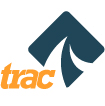Crisis Intervention
The goal of the crisis intervention program is to stabilize youth and connect them with the necessary resources to bring them out of crisis. TRAC provides multi-disciplinary crisis staffing to youth within three months of leaving foster care with no housing plan and to youth who have exited care and continue to struggle with homelessness and mental health needs.
TRAC provides crisis intervention services for youth exiting foster care as well as other youth experiencing homelessness. TRAC has crisis counselors available to triage calls and provide immediate support services. TRAC also provides homeless street outreach to youth in Dallas and Tarrant counties.
TRAC’s Drop-In Centers provide a home-like atmosphere as a constant home base for youth who are experiencing instability. This consistent “front door” ensures youth will not be turned away, but connected with their needs whether through a TRAC service or referral. At TRAC Drop-In Centers, individuals have access to meals, snacks and a food pantry. All youth are able to receive mail and store their belongings in lockers. They also have access to computers and the internet. Youth receive emergency transportation needs and other supportive items (school supplies, clothing, feminine hygiene, diapers, baby formula and similar supplies). TRAC employs a Drop-In Case Manager who facilitates this program. TRAC anticipates, based on historical data, that 15% of TRAC’s time and 15% of expenses will be spent on Drop-In Center services.
TRAC provides Preparation for Adult Living (PAL) Life Skills for emerging adults to prepare for independence. Training is provided in at least 30 hours of classes aligned with statewide standards set by TDFPS, which also funds the program. These experiential learning classes are delivered across North Texas.
The six life skills areas covered are as follows:
- Health and safety
- Housing and transportation
- Job readiness
- Financial management
- Life decisions and responsibility
- Personal and social relationships
Transition Case Management/Coaching
TRAC provides Preparation for Adult Living (PAL) AfterCare / Transition Case Management and Financial Services to foster youth under a contract with the Texas Department of Family and Protective Services (TDFPS). Life Skills Coaches work with youth on assessment, transition planning, referrals to appropriate resources, and assistance with housing and employment, offering practical application of the six core elements for PAL Life Skills Training. TRAC serves youth in either pre-transition or post-transition services as appropriate based on their referral. TRAC also ensures that youth in post-transition services are assessed and served on either a crisis intervention or planned intervention plan. For youth in crisis intervention, TRAC also assesses and coordinates services for those in persistent crisis.
TRAC’s PAL Financial Support Services include the disbursement of emergency living expenses for youth who meet TDFPS guidelines. In addition, youth may access other local programs which provide services at little to no charge, including primary health care, technology education, legal services, food assistance and long-term housing.
Transition Services include;
- Individual transition planning
- Housing assistance
- Medicaid registration
- Health care coordination
- Mental health referrals
- Access to aftercare funds
- Independent living skills
- Peer Networks
TRAC provides housing through U.S. Department of Housing and Urban Development (HUD) programs for youth experiencing homelessness or at imminent risk of becoming homeless. TRAC housing can assist youth with short-term housing assistance bridging to individualized rental assistance in their own apartment and a path to self-sufficiency.
TRAC provides a continuum of housing opportunities to emancipated homeless youth in North Texas. Youth may qualify for rental assistance, transitional housing, or permanent housing depending on their situation. Also, TRAC, in partnership with local housing authorities, helps access Foster Youth Initiative (FYI) or Family Unification FUP) vouchers. To be referred and recommended for vouchers, youth must be in one of TRAC’s case management programs: Workforce, Housing, or Aftercare.
Youth-driven individual transition plans can be created with the goal of helping young people develop a realistic plan for continuing their education, entering the workforce and becoming self-sufficient.
TRAC works with area school districts, the regional Community College Districts, the Texas State University system to assist youth in completing their educational goals. In many cases, higher education may be paid for by tuition vouchers.
TRAC works collaboratively with the Texas Workforce Commission to ensure that youth receive assistance in becoming job ready, including advancing their education, and then obtaining employment. Once employed, TRAC coaches youth to help retain employment and successfully meet their career advancement goals.
- Testing and assessment
- Computer/internet access
- GED registration
- Vocational training referrals
- College applications
- Scholarship searches
- Financial aid resources
- Career guidance counseling
- Job coaching
- Job search
- Transportation
